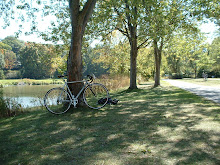Gregory, I'm sorry if I mess this up, but I think this is how his work can be summarized:
Following Carol Adam's The Sexual Politics of Meat, Gregory decided to analyze veggie "meat" packaging, and advertisements, to see how the mass media portrays vegans, to see if "veggie" meat advertising was really any different from regular meat advertising, and to see if mass media representations of veggie meat did anything to fight the masculine "meat is power" stereotype common in society.

Here is the first sentence of his dissertation, which I think is the best start to a phd ever:
Lately, while cruising through Sevananda, my local health food store, I find myself thinking about sex toys, not for the usual reasons, but rather as cultural artifacts, because every few weeks I see ever-greater varieties of fake flesh adorning the shelves of the refrigerated aisle – much more imitation flesh than one would likely encounter at any of the local sex shops.
And here are some other good thoughts:
But, perhaps, vegetarians will be the eventual losers in the battle of image politics, as market ploys convince ever-increasing numbers of consumers that meat analogs are what you’re supposed to eat when becoming vegetarian. When accompanied by the familiar imagery of the meat-centered western meal, the terms “vegetarian” and “vegan” seem less radical, much less likely to call to mind the imagery of the slaughterhouse that makes them threatening to tradition in the first place. For the carnivorous shopper who happens upon products like Now & Zen’s UnSteak, whose mascot is a smiling cartoon cow, or The Wide World of Soy’s Tofurky, which boasts new features like imitation wish-sticks and pseudo giblet gravy, the meat analog seems designed specifically to override the negative connotation of vegetarian fare as that which wantonly lacks meat; and yet these products tend to suggest very little about why it might be beneficial to stop thinking of animals as tasty objects and start thinking of them as sentient beings with whom we share the planet. Meaty imagery serves to reassure carnivorous shoppers that their tastes are indeed correct and that all people, even those who avoid animal-based foods, are somehow biologically predisposed to preferring them. This carnivore-friendly conception of vegetarianism, which we might call veggie-lite, fails to address the issues that have inspired so many people to embrace diets that are not only delectable and delicious on their own terms, but also animalfriendly, environmentally-friendly, and nutritionally-complete.
Despite cranky vegetarian critiques like this one, manufacturers of meat analogs make huge profits from their depoliticized versions of vegetarianism, even as their companies get bought up by huge food conglomerates whose other product lines are anything but vegetarian-friendly. The increasing effectiveness of their advertising and the success of their meat analog products serves first to emphasize just how much our culture fetishizes animal-based foods, second how much consumers are beginning to realize that their continued health depends on finding alternatives to dominant dietary paradigms, and third how enduring our powers of denial can be when faced with the fact that our taste for meat analogs is derived almost entirely from our nostalgia for the belief that killing, dismembering, and eating animals is the healthiest, tastiest, and most natural course for all concerned. If meat analogs could somehow manage to displace animal-based foods as the focal point of the western diet, they just might end up doing as much for vegetarianism as the dildo does for lesbianism.

The fact is... some men are willing to try meatless meals. Furthermore, when they are represented as heterosexual, monogamous, and “family-oriented” men, the
suggestion is that carno-phallogocentrism can be revised at an infrastructural level. If fathers and husbands can be vegetarian or, gasp, even vegan, then the potential for entire families to follow such a diet is more easily realized. Such ads have some
serious implications for the sexual politics of meat because they not only suggest that men can go meatless, but also that vegetarian and vegan men are not necessarily gay, queer, or effeminate, and that, for all appearances, they have normative sexual relation with women. I’m not suggesting that male vegetarians and vegans should breed themselves into predominance, but, more simply, that the marketplace in trying to capitalize on a strange “new” foodway has inadvertently created a new stereotype: the vegetarian patriarch.

No comments:
Post a Comment